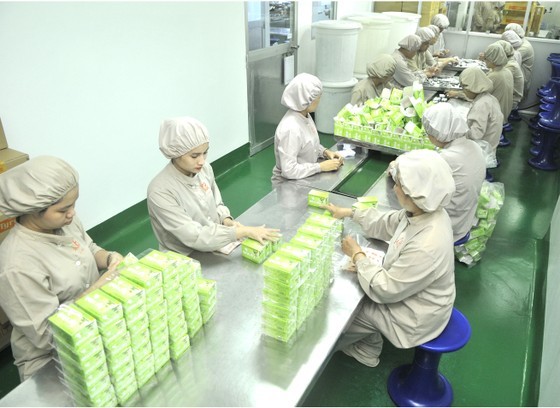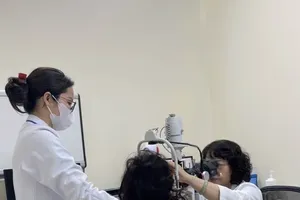 |
Vietnam’s pharmaceutical industry is expected to be on par with that of advanced countries in the region. (Photo: SGGP) |
Vietnam’s pharmaceutical industry is expected to be on par with that of advanced countries in the region and ensure people’s access to drugs at affordable prices, according to a freshly approved strategy for the development of Vietnam’s pharmaceutical sector by 2030 with a vision towards 2045.
Deputy Prime Minister Tran Hong Ha on October 9 signed a decision to approve the national strategy, under which Vietnam will improve its research capacity and optimize existing technologies to churn out generic medicines and modern dosage forms, towards becoming a center for manufacturing/technology transfer of generic drugs in the Association of Southeast Asian Nations (ASEAN).
Vietnam also targets the mass production of drugs and products from domestic medicinal resources with high quality and value and boosts the production of pharmaceutical raw materials.
The country strives to ensure medicine security, with domestically-produced drugs expected to meet about 80 percent of the demand, and homemade vaccines are enough for the national expanded immunization program and satisfy 30 percent of private vaccinations.
Vietnam aims to achieve the WHO certification of level 3 or higher for the capacity of state management agencies over pharmaceutical products and maintain and upgrade the organization’s certification for the capacity of state management agencies over vaccines.
The 100 percent of pharmaceutical businesses meeting good manufacturing practice (GMP) standards will be maintained, while all drug and vaccine testing facilities are hoped to follow good laboratory practice (GLP) principles.
The sector also strives to have 30 percent of generic drugs, both locally manufactured and imported, registered for circulation, and all of the drugs in circulation monitored in line with regulations set by the Ministry of Health.
The strategy also highlighted digital transformation, with all information and data about drugs in circulation being updated on the sector’s database.
It set the ratio of four pharmacists per 10,000 people, and the sector’s contribution to the national gross domestic product (GDP) at over US$20 billion.
The strategy also mentioned drug supply, focusing on ethnic minority groups and residents in mountainous and island areas, and other disadvantaged localities, along with inspections and supervision over the operations of businesses, and the fight against smuggling and the illegal transportation of medicinal materials across borders.
To achieve the targets, Vietnam will continue consolidating relevant institutions and laws, raise the sector's competitiveness, improve management capacity, step up international cooperation, and utilize advances of the fourth Industrial Revolution, among other solutions.
























